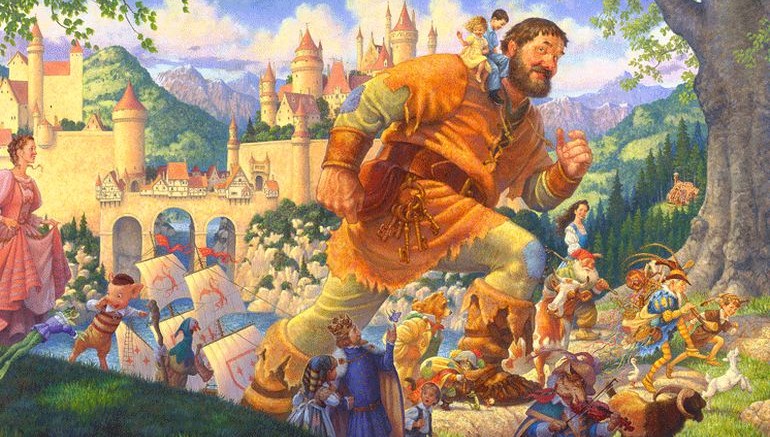¶ Prompt from Julia Cameron’s The Right to Write.
Cameron ends her Stakes chapter with a quote from Shakespeare’s character, Polonius: “To thine own self be true. And it must follow, as the night the day. Thou canst not then be false to any man.” Ergo, if you are honest in your work, your work will be honest. Erm, but what does being honest have to do with raising stakes?
I went to a Moth event a few months ago and was blown away by the storytellers on stage. When I looked on the website to see how to sign up, the advice there seemed of the good kind: Be forewarned, be clear about stakes, start strong.
Students in workshop ask, “Why should we care?”
“Why?” we reply, “because I care!”
“No one gives a fuck,” my professor of translation explained, making light of how the market for translation works, saying that the translator must connect the project to the larger world, not just to one’s personal interest.
It isn’t enough to just want to do it though? Isn’t translation a labor of love?
“Not if you want to sell.”
Sell? Blast! That thing again.
If you are looking for advice on how to write work that will sell, please google elsewhere. I haven’t sold anything yet…
And yet, Cameron tells us: “For my money, beautiful writing that ignores the question of stakes is beautiful writing that soon becomes boring.”
This statement cut me, as did the chapter. This problem, of stakes, keeps rearing its head, and I keep ignoring it. “I just want to produce beautiful work.” Who cares? “Me, and so should you.” Why should I care? “Because I invested time and energy, because I have stakes in this project failing, and if it fails, then…” So what?
I feel like this question is unanswerable, or I don’t want to answer it. Cameron writes that if a piece is written from the “inside-out,” as in you write about something you care about, then the writing will matter to others. But in the same chapter she said that that may not always be the case: as was the case with her most famous and well-sold book, The Artist Way. She pitched it to an agent. It got the old, “there is no market for this.” Now, despite the naysayers, it is in every bookstore.
How many times do we hear the same story? Does the cosmic order ask writers to dig deeper, to self-publish, to raise the stakes by starving, by going at it alone, all so in the end there is a story about the story that repeats the “I did it anyway” mantra of America? Of course, I am considering this move, so I am biased. But I am also in bliss: maybe the real way to publishing, at least for me, will be to follow my gut. And my gut says, GO.
(By the way, a couple just climbed the rooftop across from me, the same one with the trash bag floating in the wind. Both people have long hair. One helps the other up. It is a seven story drop. They sit down, tying their hair back, now lighting a pipe. The one blows smoke into the other’s mouth. Wow-zaa. They are high, up: are these the stakes? The chance of falling? The love between two people? The mystery of finding out why they went up there? Details to be revealed… for now, the one is dancing, the other playing with a yo-yo. A dense fog serves as their backdrop.)
Fucking Stakes. Why? I want to write a beautiful story, line-by-line. That is what I have to offer and that is what I believe can be of benefit. Cameron says how writing that moves “outside-in,” meaning it was written specifically for a market, feels dry and cold. But if I artificially layer stakes, if I follow the advice on the Moth website, and tell a story, or change my story, to fit the mold, then what the hell? <Applause.> You did it. You pleased us.
(The one person still yo-yos; the other has begun recording it. If he moved around, just a bit, and the fog cleared, then the city skyline would be in the shot. This is the first time I have ever seen people on that roof. They hug.)
So yes. I am afraid: (of exaggerating, lord knows, on this blog, and that) I will spend four years on a book and it be shot in the face by the simple question of what it has to offer you by way of stakes. Stab a writer while you ask — here’s a stake — for some stakes. “Why should I worry,” you ask again. “Why should I care?” (Yo, funny how this song mixes languages — nothing is new.) Why should anyone care about self-indulgent, self-absorbed, self-blah? Certainly not another self. On home-field, though, one can get away with it.
Without further ado, Mr I-O-U… this week’s exercise:
“This is a tool of self-inventory. One more time you are asked to observe yourself as a character and learn from that observation…”
1. What three topics do you often read about?
Writing craft
Language
Relationships
2. What three topics do you often think about?
What it means to be oneself, while negotiating with others, and how one does this fully.
Getting by in life with simple answers, vs living ecstatically, with empathy and mystery.
The project at hand, whatever it may be.
3. What are five of your favorite books?
Anna Karenina
El Principito
Kama Sutra
Women
El Quijote
4. What do these books have in common concerning theme, genre, setting, and, above all, stakes? What do people stand to win or lose? Love, Money, health, life, death?
Theme: the five books deal with love, and the negative and the positive approaches to love (the connection, attachment, entanglement between persons), but not principally; mostly these books all have something to teach the reader. Genre: none, essay vs novel vs children’s book, but mostly thick or heavy. Setting: remote places, except Women, although LA feels remote to me. Stakes? Loss of love, and the need to get it back; loss of friendship, and the need to fix it; harsh reality vs idealized world, the challenge of accepting one vs denying the other. Ultimately, the danger of not heeding the advice presented in these books, that is, the price of not thinking about the topics presented in these books (economic systems, dreams, men and women, travel) could lead to disaster. It is in considering and in analyzing and in discussing and in arguing and in grappling with the themes of these books that anyone gets anywhere. At least I see it that way.
5. What are five of your favorite movies?
The Big Lebowski
Boyhood
La Grande Bellezza
Solaris
Love
6. What do your movies have in common with your books in terms of theme, genre, setting, and, above all, stakes?
Theme: Family, loss of love, a sprinkle of magic; also, humor is a big part. Genre: long, drawn out, and heavy — literary or film auteur; the stories I like are, in my opinion, completely idiosyncratic — created by artists who are considered to have their own style, their own language. Setting: These stories are heavily rooted in one place, even if there is a bit of traveling, even if the character isn’t from that one place; overall, though, setting isn’t the most important part of these stories. In any of these stories, the setting could be somewhere else; compared to other beautiful movies like City of God, of La Haine, or Oliver and Company, which are tied to their setting. Stakes? The past, how it is gone forever, and so “what to do now”–the biggest question in all these films, the narrative being a way of claiming the present.
(The couple has stepped down. Nothing happened by way of naughty juice. What were the stakes for, then? At least they had fun. Isn’t that enough?)
7. What is your favorite fairy tale?
My grandfather used to tell me fairy tales about witches and monsters, as we walked around Memorial Park in Houston. Those were my favorite. But I like King Arthur, and other knight stories.
8. What is your favorite childhood book?
El principito
9. What do your fairy tale and childhood book have in common?
My father read El principito to me, bedtime; while my favorite stories were made up by my grandfather. I think what they have in common is that the storytelling came from someone close to me. Even King Arthur. I would watch those stories with my mother. I think family and storytelling, being close and intimate, are important.
10. List five topics you are currently thinking about?
Art
Independence vs interdependence
Travel
Housing
Money
11. Which of these feels “hottest”?
Art.
(I am going to invent a better ending for that couple. Let’s say they were artists in need of inspiration. They went up to enjoy one another’s body and company. They needed fresh air. They got it. They made love seven-stories in the air, and wrote their own stories with their tongues and their hands. I watched it, but without coveting, without binoculars. The gentleman lifted the lady up. She grew wings. She flew away. He did a back flip, turned into an eagle. And flew towards her. All that was left was the yo-yo. I told their story. The end.)




